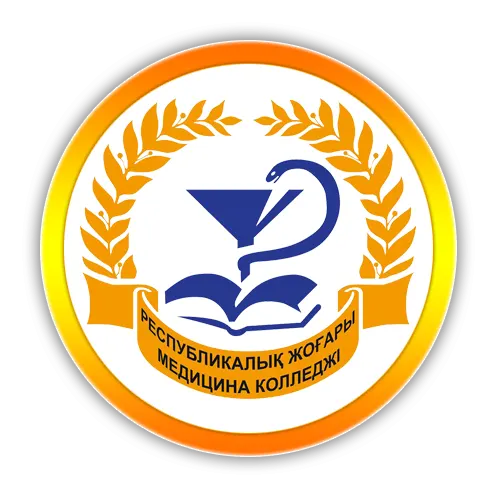Today, the Republican Medical College is one of the largest medical colleges in the republic, about 7 thousand students study in it in 7 specialties of secondary medical and pharmaceutical education, more than 3 thousand nursing workers undergo retraining and advanced training annually. More than two hundred experienced teachers are involved in their professional training, including mid-level specialists of the highest and first categories, doctors and candidates of science.
The teaching staff of the college is faced with a number of fundamentally new tasks due to political, socio-economic, ideological and other factors, among which it is necessary to highlight the improvement of the educational process and the improvement of the quality of training of nursing personnel. One of the ways to solve these problems is the informatization of the educational process and the introduction of innovative technologies in the educational process. For this purpose, in 2010, an information technology center and a center for monitoring the quality of educational services in professional practice were created. In 2011, a modern automated information system (AIS) was introduced, operating on the principle of a complex office registrar. AIS unites the activities of all structural divisions of the college, promotes information exchange, increases the efficiency of training, provides access to data on the contingent, human and educational resources and allows monitoring the quality of knowledge, skills and abilities of students, students and teachers.
The center for monitoring the quality of educational services installed video surveillance with audiovisual output on the screen. The introduction of an independent assessment of students and graduates using the “Standardized Patient” method has begun.
To remain a competitive educational institution, it is necessary to be sensitive to the demands of the labor market.
The role, functions and organizational forms of activity of mid-level specialists today are changing in accordance with the new challenges facing healthcare. This is the development of primary health care, the formation of a healthy lifestyle, the restructuring of medical facilities and the reduction of hospital stays, the expansion of the volume of out-of-hospital care and rehabilitation measures, the formation of hospitals / departments with different intensities of treatment and care, the organization of hospices and the provision of palliative care. All this required from the teaching staff of the college to revise the educational and program documentation, equip offices and laboratories with modern medical equipment and tools, simulation simulators and dummies, i.e. bringing training closer to practical activity.
In September 2009, for the first time in Kazakhstan, the college under the state order trains students in the specialty “Nursing” with the qualification “Masseur” for the visually impaired.
According to the agreement between the governments of Kazakhstan and the Islamic Republic of Afghanistan “On cooperation in the field of education” (Kabul, November 22, 2009), the training of students from Afghanistan has begun within the walls of the college. To date, 30 IRA citizens study at the RCC.
In order to improve the quality of training and retraining of nursing specialists, it became necessary to combine the efforts of medical colleges in Kazakhstan. In February 2011, the Union of Legal Entities “Union of Medical Colleges of Kazakhstan” was created, with 28 state and 23 non-state medical colleges becoming its members. Under the Union, 6 educational and methodological associations were created in 7 specialties. The coordination of their activities is carried out by an advisory body – the Educational and Methodological Council. The chairman of the board of the ALE “Union of Medical Colleges of Kazakhstan” was elected the director of the RCC, the chief freelance specialist in nursing of the Ministry of Health of the Republic of Kazakhstan S.T. Seidumanov. Since December 2011, the ALE took over the functions of publishing the magazine “Information Bulletin” “Information Bulletin on Nursing” with the expansion of the territory of distribution to the CIS countries. The journal’s topics include materials on nursing, scientific articles on the exchange of work experience, information on the latest medical technologies and developments in the field of preserving and maintaining public health. The Union plans to hold Republican contests “Best Teacher”, “Best Graduate”, “Best Educational and Methodological Literature”, scientific and practical conferences on the development of professional standards for nursing specialists, on improving the state educational standard and job placement. By the end of 2012, educational and methodological associations by specialties are completing work on the creation of professional standards for the activities of mid-level specialists.
In October 2012, the Ministry of Health of the Republic of Kazakhstan noted the many years of conscientious work of S.T. Seidumanov. the breastplate “Densaulyk saktau isine koskan alesi ushin”.
The staff of the college, as part of the implementation of the State Program for the Development of Healthcare of the Republic of Kazakhstan for 2011-2015, the Concept for the Development of Medical and Pharmaceutical Education of the Republic of Kazakhstan for 2011-2015, on the eve of the 75th anniversary of the college adopted new requirements for the quality of education. From the traditional education system “I teach myself – I check it myself” they began to move to the assessment of quality control of education by an independent commission. Independent expert panels not only assess, but also identify the causes of deficiencies in training and recommend ways to eliminate them. To assess the level of training of students and graduates, clearly defined learning outcomes are needed. For this purpose, in all specialties, work is being completed on the preparation of professional standards for the activities of specialists.
Creating conditions for training, updating standards, curricula and programs that meet the requirements of the labor market, introducing an independent external assessment of the quality of education, recognizing the high quality of knowledge and skills of graduates of medical colleges by employers are the main tasks set for the college staff.

